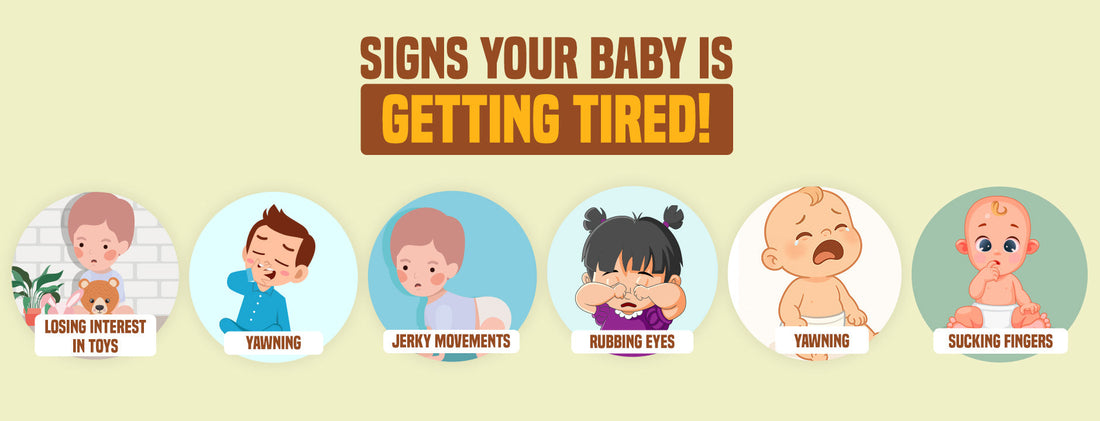If you're a parent, you already know babies don't come with a manual—especially when it comes to sleep! Babies can't say, "I'm tired," but they do give small clues to indicate they need to sleep. If you learn to pay attention to these cues, you can head off fussiness and make nap and bedtime so much simpler.
The first few are simple signs that your baby is sleepy and ready to sleep:
1. Yawning
Yawning is a simple sign to identify. When your baby is yawning, it indicates that their body is preparing to sleep. You can calm down and ready your baby for a nap or bedtime if you catch yawns early.
2. Sucking Fingers or Thumb
Babies tend to suck their thumb or finger when they begin to feel drowsy. This makes them feel relaxed and secure. If you notice your baby sucking their fingers or thumb, it may be time to begin preparations for sleep.
3. Rubbing Eyes or Face
Just as adults rub their eyes when fatigued, babies also do so. Eye rubbing or face rubbing is an indication that your baby requires a break and is due for some rest.
4. Jerky or Restless Movements
Babies at times become too fatigued, and their movements turn out to be jerky or restless. You may observe tiny twitches or rapid kicks. This indicates that their body is exhausted but has not relaxed yet.
5. Fussing or Getting Cranky
If your baby becomes fussy, cries, or appears to be upset without explanation, they are likely to be overtired and finding it hard to stay awake.
Why These Signs Need to Be Noticed Early
Unless you catch the signs early, your baby will become overtired, and it will become much more difficult for them to sleep. When babies are overtired, their bodies will secrete stress hormones that are designed to keep them awake, causing them to cry and have difficulty settling down.
By observing for yawns, finger sucking, eye rubbing, jerky motions, or fussiness, you can assist your baby in sleeping before they wake up too tired. Experiment with closing the lights low, having the room be quiet, and holding your baby close to assist them in feeling calm and secure.
Help Your Baby Rest and Sleep
Create a quiet and gentle area: Employ low lights, gentle sounds, and rocking.
Maintain a consistent routine: Babies enjoy performing the same activities before naps and sleep at night each day.
Provide comfort: A comforting blanket, pats on the back, or a soothing lullaby can calm your baby down.
Be patient: sometimes babies need extra love and time to sleep.
If your baby does not immediately sleep, consider offering them a special toy to play with quietly or softly massaging their back, arms, or legs. These subtle movements make your baby feel safe, calm, and prepared to drift off to sleep naturally. Additional useful suggestions are singing gentle lullabies, rocking your baby gently, or even going for a short stroll with them cuddled close. These little caring movements can be the big difference that contributes to a calm and peaceful baby.
Final Thoughts
Each baby is unique, and as you get to know each other, you will become more attuned to your baby's sleepy cues. The secret is to be alert and act before your baby gets overtired or upset. If you see these signs early, bedtime will be a breeze, and both of you can have more relaxed and joyful sleep.
Keep in mind, your baby isn't refusing to sleep on purpose—only trying to communicate what they need. Try not to be so hard on yourself and your baby—it doesn't have to go perfectly every time. With practice, love, and patience, you'll be an expert on your baby's needs before long, and both of you will be sleeping better.


